Gabriela Hernández
Alimentación para niños y embarazadas: Gabriela Hernández, Colaboradores especiales
Cuando te quedas embarazada, no importa si eras de las que comía comida rápida a diario o si eras una raw vegan ejemplar, en el momento del embarazo te verás envuelta en un mar de dudas:
Alimentación durante el embarazo
Pocos momentos en la vida como el embarazo nos llevan a desarrollar una especie de neurosis involuntaria respecto a la alimentación. Y si lo piensas, es normal. De repente te encuentras con la responsabilidad de tener en tus manos una vida nueva, ¡cómo para no preocuparte!
Hay una lista bastante consensuada de alimentos que es mejor evitar. Y por supuesto que te la daré aquí, pero antes de entrar en materia, quiero aludir a tu sentido común.
Esta lista “oficial” que antes tenía un puñado de alimentos y algunas recomendaciones, crece cada vez más y es cada vez más controvertido por lo que una madre que va recopilando información de «alimentos a evitar durante el embarazo” acaba con una lista interminable y entre Google, el médico, la suegra, la señora en el supermercado y su amiga Juana, ha desarrollado una pequeña paranoia cuando toca comer…Y esto, sí que no es bueno.
¿Te parece normal que esté contraindicado tomar especias como la cúrcuma durante tu embarazo si en la India se toman a diario?
¿O que dejes de tomar perejil en un batido verde porque dicen que puede ser abortivo?
¿Te parece normal que te digan que no comas cosas crudas cuando tu cuerpo necesita máxima nutrición?
¿O que haya una lista interminable de ingredientes “posiblemente” con riesgos naturales pero nadie te advierte lo malas que son las grasas trans para tu bebé?
Vamos por partes, primero la lista “oficial” de lo que no se debe tomar.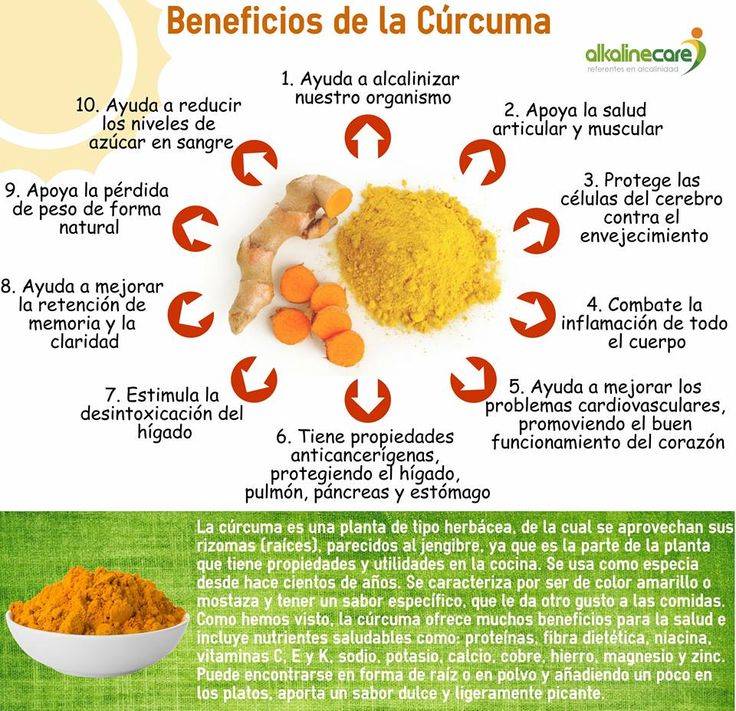 No me extiendo mucho con esto porque hay miles de artículos en internet en los que puedes ir a mirar todo detalle:
No me extiendo mucho con esto porque hay miles de artículos en internet en los que puedes ir a mirar todo detalle:
Los por qués generales son el riesgo de contraer enfermedades que pueden afectar tanto a la madre como al feto: listeriosis, toxoplasmosis, salmonela y e-coli.
Y el tema es que aunque es una lista más o menos “oficial”, dependiendo del médico que lleve tu embarazo, te dirá que lo evites del todo, o que compres un termómetro de cocina y entonces hagas algunas excepciones si calientas la comida a 75ºC, que el equivalente a una caña al día está bien o que ni una sola gota de alcohol.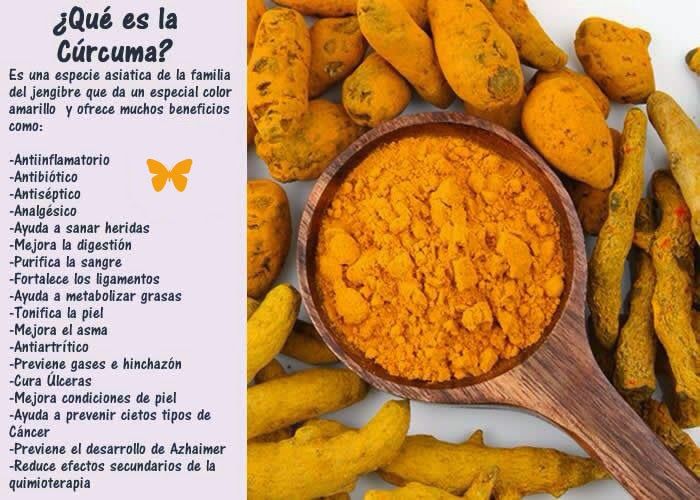
Y si a esto le añades la lista “no oficial” de cosas que lees o escuchas por ahí acabas dudando de si puedes seguir tomando tu chucrut casero, de si debes de dejar de poner cilantro fresco en tu batido verde, de si esas crackers que tomas con lino pueden ser tóxicas, etc.
Pues eso no te lo puedo decir. Lo que sí puedo hacer es darte algunos consejos para que decidas:
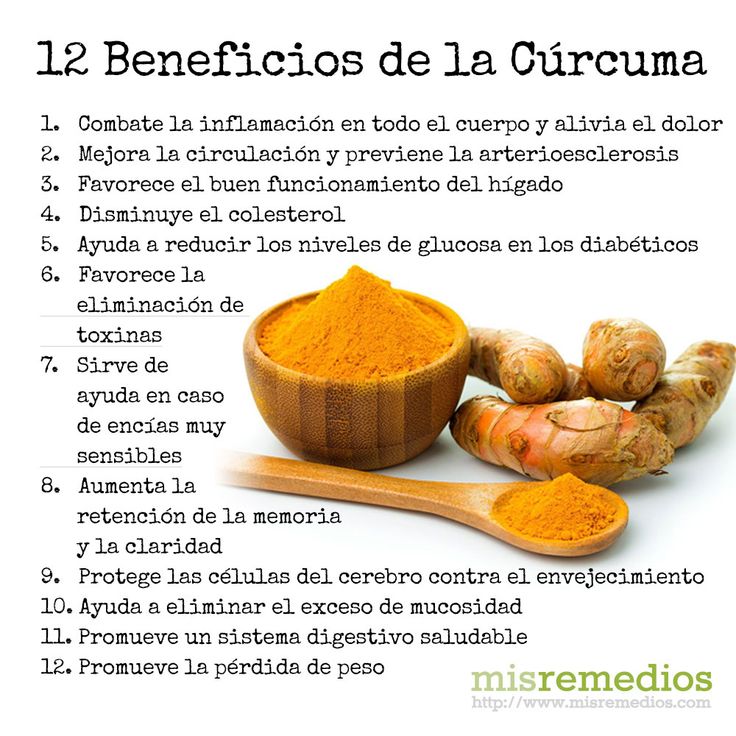
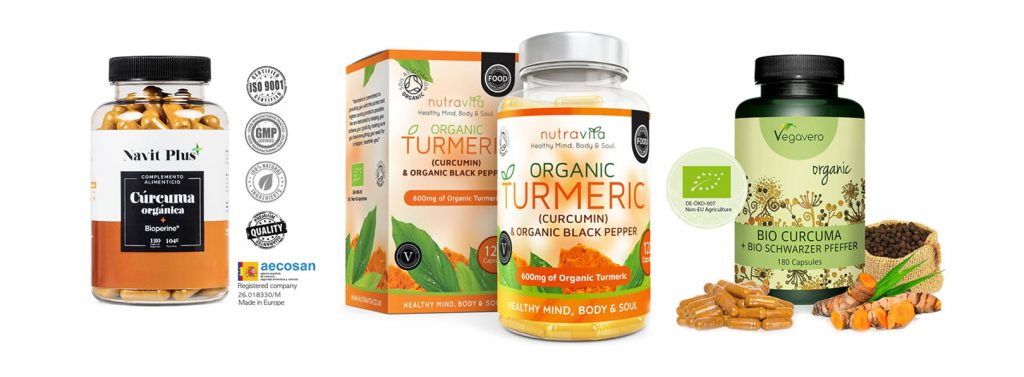 Si no es algo que tomabas ya, en el embarazo no es el momento de tomar grandes cantidades de un alimento nuevo. Un ejemplo sería con lo que mencionaba de la cúrcuma. Si tú cocinabas con cúrcuma normalmente o tomabas “leche dorada” con regularidad, puedes seguir tomándola embarazada. Sin embargo si no, la podrías tomar como especia pero no hacer un tratamiento de leche dorada o algún otro que la incluyera en grandes cantidades a menos que lo consultes con tu médico o terapeuta. Con el ejemplo del perejil, para que nos afectara en el embarazo de forma negativa, necesitaríamos tomar una gran cantidad de cualquier hierba aromática. Un manojo pequeño de cualquier hoja o hierba no tendrá este efecto (a menos de que tengas historial de tema de contracción uterina). Además, las especias como el perejil las usamos por lo general en pocas cantidades.
Si no es algo que tomabas ya, en el embarazo no es el momento de tomar grandes cantidades de un alimento nuevo. Un ejemplo sería con lo que mencionaba de la cúrcuma. Si tú cocinabas con cúrcuma normalmente o tomabas “leche dorada” con regularidad, puedes seguir tomándola embarazada. Sin embargo si no, la podrías tomar como especia pero no hacer un tratamiento de leche dorada o algún otro que la incluyera en grandes cantidades a menos que lo consultes con tu médico o terapeuta. Con el ejemplo del perejil, para que nos afectara en el embarazo de forma negativa, necesitaríamos tomar una gran cantidad de cualquier hierba aromática. Un manojo pequeño de cualquier hoja o hierba no tendrá este efecto (a menos de que tengas historial de tema de contracción uterina). Además, las especias como el perejil las usamos por lo general en pocas cantidades.Dicho esto, es muy posible que la mujer embazada note que varios platos o ingredientes que le gustaban mucho antes, embarazada ¡no puede ni olerlos! Y es recomendable que haga caso a esto.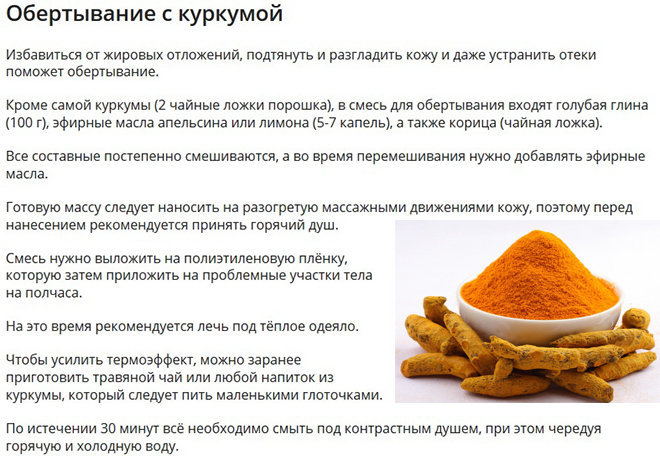 Porque siguiendo con el ejemplo de las hojas verdes, es posible que a una madre le apetezca muchísimo su batido verde de siempre pero a otra sólo con el olor le den arcadas. En ambos casos es el cuerpo el que marca su necesidad.
Porque siguiendo con el ejemplo de las hojas verdes, es posible que a una madre le apetezca muchísimo su batido verde de siempre pero a otra sólo con el olor le den arcadas. En ambos casos es el cuerpo el que marca su necesidad.
Concluyo comentando algo que es imprescindible para la salud de la embarazada, además de la precauciones de no tomar ciertos alimentos y de la higiene en su manipulación, será de su especial interés ocuparse de que su flora bacteriana sea buena y esté en equilibrio.
La científica Guila Enders en su libro, «La Digestión es la Cuestión», nos explica que para que una bacteria pueda enfermarte cuando entre a tu cuerpo (por medio del alimento en cuestión), esta debe encontrar un terreno fértil para propagarse. Es decir, es importantísimo ocuparte de que tu terreno intestinal no sea un terreno fértil para estas bacterias tomando alimentos prebióticos y probióticos. Y por tanto, suplementar con probióticos durante el embarazo será muy buena idea.
La información de este artículo proviene de fuentes científicas que presentan datos basados en evidencia. El artículo ha sido revisado y/o escrito por profesionales de la salud para garantizar la más amplia precisión médica basada en estudios científicos actuales, cumpliendo además con los estándares Fact Checked. Más información
El artículo ha sido revisado y/o escrito por profesionales de la salud para garantizar la más amplia precisión médica basada en estudios científicos actuales, cumpliendo además con los estándares Fact Checked. Más información
4 minutos
Algunas especias culinarias están prohibidas durante el embarazo, ya que podrían generan problemas en el desarrollo del feto. Te contamos si la cúrcuma está entre ellas.
Escrito y verificado por el nutricionista Saúl Sánchez Arias.
Última actualización: 26 octubre, 2022
La cúrcuma es una de las mejores especias culinarias. Esta se destaca por sus propiedades antiinflamatorias y antioxidantes, por lo que puede ser utilizada para mejorar el estado de salud y para prevenir el desarrollo de patologías complejas. Ahora bien, ¿Es posible tomar cúrcuma en el embarazo? Enseguida te lo resolvemos.
Antes de comenzar, has de tener en cuenta que durante el período de gestación es fundamental cuidar la dieta.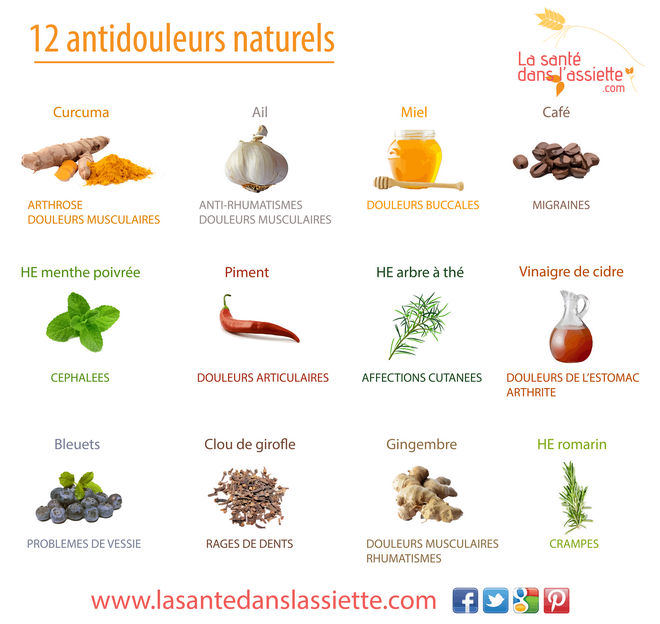 Existen ciertos alimentos, condimentos o hierbas que se restringen durante esta etapa, ya que podrían causar efectos nocivos al feto. Es importante conocerlos para evitar cometer errores en este punto.
Existen ciertos alimentos, condimentos o hierbas que se restringen durante esta etapa, ya que podrían causar efectos nocivos al feto. Es importante conocerlos para evitar cometer errores en este punto.
Lo primero que hay que destacar es que la cúrcuma sí se puede consumir durante el embarazo. Es más, esta especia cuenta con una serie de beneficios para las mujeres en estado de gestación. Entre ellos, podemos destacar los siguientes:
Además, hay que destacar que la cúrcuma concentra una dosis significativa de vitamina C en su interior. Por este motivo, es capaz de ayudar a reducir la incidencia de muchas patologías respiratorias, sobre todo las de tipo infeccioso. De acuerdo con un estudio publicado en la revista Nutrients , dicho micronutriente es clave para asegurar el buen funcionamiento del sistema inmune.
De acuerdo con un estudio publicado en la revista Nutrients , dicho micronutriente es clave para asegurar el buen funcionamiento del sistema inmune.
La cúrcuma se puede diluir en agua, leche o zumo, entre otros, o añadir en las comidas. Se trata de una especia que aporta grandes beneficios tanto a la madre como al bebé.
Según se desarrolla el feto, se vuelven más regulares las molestias de tipo estomacal. Esto se debe a que el bebé produce una ligera presión sobre algunos órganos del cuerpo, lo que puede generar situaciones de reflujo o de acidez. Sin embargo, estas se pueden combatir por medio de la dieta.
Uno de los mejores condimentos para mitigar los problemas digestivos es la cúrcuma. Esto tiene que ver con su elevado poder antiinflamatorio, lo que reduce la presión interna y disminuye la incidencia del reflujo. Su inclusión en la dieta de las mujeres embarazadas podría generar varios beneficios al respecto.
La mayor parte de estos efectos positivos de la cúrcuma se deben a la presencia de un fitonutriente: la curcumina. Así lo evidencia una investigación publicada en la revista Critical Reviews in Food Science and Nutrition . Este elemento se ha llegado a asociar con una disminución de la incidencia de algunos tipos de cáncer.
Hay que destacar que los procesos inflamatorios continuados en el organismo de la madre pueden influir sobre el correcto desarrollo del bebé. Es más probable que en este contexto el feto desarrolle autismo, hiperactividad u otros desórdenes de tipo neurológico. Por este motivo, la cúrcuma podría resultar muy beneficiosa también para prevenir problemas de salud. Al ayudar a nivelar la inflamación sistémica, esta especia podría contribuir a asegurar una correcta gestación y a favorecer la buena función del pequeño a nivel neurológico tras el parto.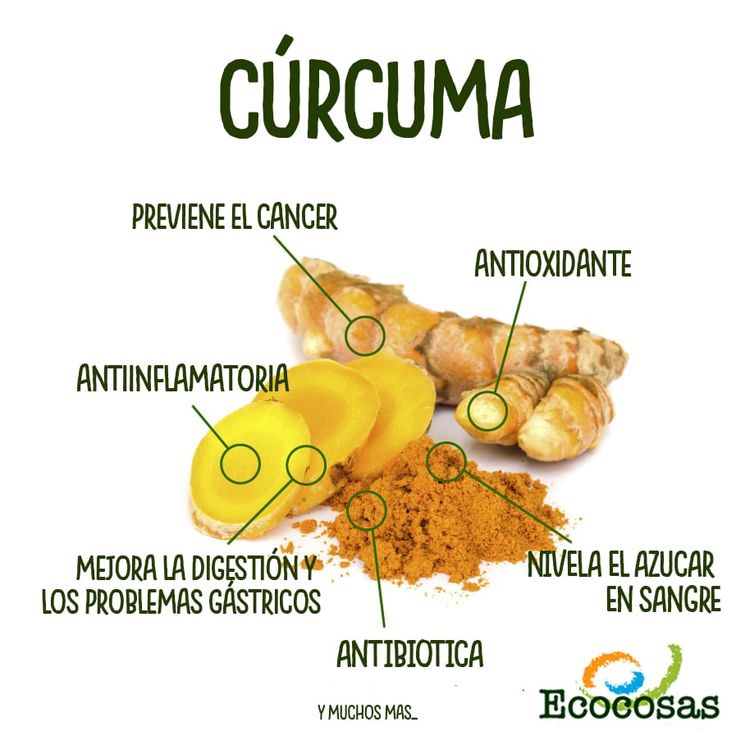
La cúrcuma se puede incluir en la dieta de la embarazada sin inconvenientes, aunque hay alguna excepción. En caso de haberse presentado una reacción alérgica por su consumo previo a la gestación, entonces lo mejor será restringirla.
La cúrcuma es una especia culinaria muy segura. Solamente ha de ser restringida durante el embarazo en aquellas mujeres que hayan presentado reacciones alérgicas a la misma de forma previa. La mayor parte de ellas suelen cursar con erupciones a nivel cutáneo o con dolores de cabeza tras el consumo del condimento.
Hay que tener en cuenta, eso sí, que una cantidad excesiva de cúrcuma podría generar un cierto malestar digestivo por irritación. Esto se debe a que estimula la producción de ácidos gástricos, lo que genera inconvenientes en algunas personas. Asimismo, las embarazadas que presenten problemas de coagulación o hepáticos también han de evitar su ingesta.
Como has podido comprobar, la cúrcuma es una especia culinaria capaz de aportar varios beneficios durante el embarazo, tanto para la madre como para el feto. En la mayoría de los casos se puede incluir en la dieta sin ningún problema y es recomendable su presencia regular en la misma.
Ahora bien, es importante garantizar que la pauta de alimentación sea equilibrada y variada para poder experimentar todos los efectos positivos que hemos comentado. También, será preciso mantener un cierto grado de actividad física para asegurar que el feto se desarrolle de forma óptima.
Te podría interesar…
The material was commented by Evgenia Maevskaya, Candidate of Medical Sciences, Assistant of the Department of Propaedeutics of Internal Diseases and Gastroenterology of the Moscow State Medical University. A.I. Evdokimova, gastroenterologist, nutritionist, GMS Clinic
A.I. Evdokimova, gastroenterologist, nutritionist, GMS Clinic
This is what flowering turmeric looks like
© Pixabay
Advertising on RBC www.adv.rbc.ru
Turmeric is a plant of the ginger family whose rhizomes and stems contain the yellow dye curcumin. In India, from the 600s BC. Turmeric was used to make curry powder. Another name for turmeric is turmeric. The spice is loved for its rich bitter taste, the color it gives to dishes, and its medicinal properties. Active compounds, curcuminoids, are responsible for the latter; their volume is 3% of the total weight of the root or stems [1].
8 Spices for High Immunity, Low Cholesterol and Mega Metabolism
Numerous studies support the benefits of Turmeric. The plant has anti-inflammatory and antioxidant properties, improves brain function, reduces the risk of cardiovascular disease and cancer. Turmeric can be used in the prevention of Alzheimer’s disease, helps with arthritis and depression, and also slows down the aging process in the body.
Turmeric is used to relieve pain and inflammation such as osteoarthritis. It should be borne in mind that curcumin is poorly absorbed into the bloodstream, it is better to eat it with fatty foods. The benefits of turmeric are enhanced with the right combination of spices. For example, the substance piperine contained in black pepper significantly improves the absorption of curcumin – by an average of 2000% [2].
The spice is recommended for hay fever, liver disease and itching. Some use turmeric for heartburn and to improve memory, but there is no conclusive scientific evidence to support the effectiveness of the seasoning in these cases [3]. Turmeric contains essential oils and many useful substances: vitamins C, K and B vitamins, iron, phosphorus, iodine and calcium. 100 g of spice contains 2–7% food minerals, 3–7% essential oils, 6–8% protein, 60–70% carbohydrates, and 3–7% fat [4].
Scientists believe that chronic inflammation is the main cause of many common diseases. This includes heart disease, metabolic syndrome, Alzheimer’s disease, and various degenerative conditions [5]. Curcumin has a strong anti-inflammatory effect.
This includes heart disease, metabolic syndrome, Alzheimer’s disease, and various degenerative conditions [5]. Curcumin has a strong anti-inflammatory effect.
Turmeric roots used to make powder
© Andy HYD/Unsplash
It has been compared to some pharmaceutical drugs, but unlike them, the substance has no serious side effects [6]. Curcumin blocks the NF-kB molecule, which penetrates into cell nuclei and initiates inflammation [7].
Anti-inflammatory diet: who needs it and what are the key foods
Oxidation of the body is considered one of the mechanisms that accelerate aging and provoke diseases. It involves free radicals that react with organic substances – proteins, fatty acids and DNA. Antioxidants such as turmeric protect the body from free radicals [8]. In addition, they increase the activity of their own antioxidant enzymes [9].
It used to be that neurons lose their ability to divide and multiply over time.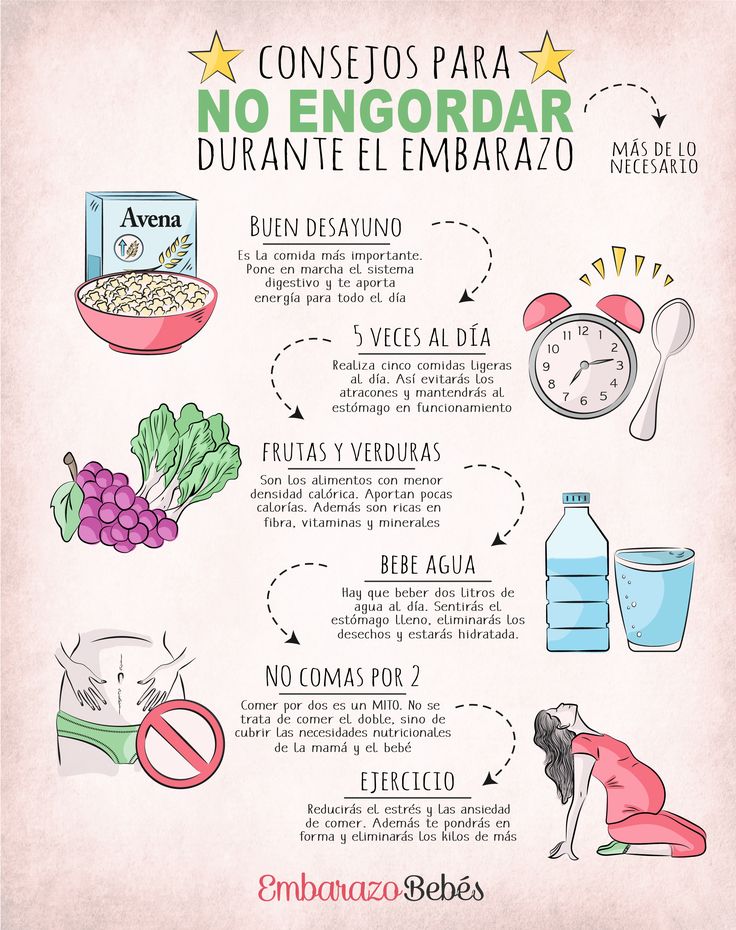 However, it is now known that they are able to form new bonds and increase in number. One of the main reasons for this process is brain-derived neurotrophic factor (BDNF), a type of growth hormone. Many well-known diseases, including depression and Alzheimer’s disease, are associated with a decrease in the level of this hormone [10]. Curcumin can be added to food to prevent these conditions. It increases the level of the brain hormone BDNF, which increases the growth of new neurons and fights various degenerative processes.
However, it is now known that they are able to form new bonds and increase in number. One of the main reasons for this process is brain-derived neurotrophic factor (BDNF), a type of growth hormone. Many well-known diseases, including depression and Alzheimer’s disease, are associated with a decrease in the level of this hormone [10]. Curcumin can be added to food to prevent these conditions. It increases the level of the brain hormone BDNF, which increases the growth of new neurons and fights various degenerative processes.
8 foods to improve memory
Heart disease occurs for many reasons, from genetic predisposition to lifestyle. But scientists are confident that curcumin can prevent health problems [11]. It improves the function of the endothelium lining the walls of blood vessels. Destruction of endothelial cells provokes the development of heart disease, pressure failures and deterioration of blood clotting [12].
Turmeric is good for the heart, blood vessels and brain
© Taylor Kiser/Unsplash
Research confirms that curcumin works like atorvastatin in lowering cholesterol [13]. Another experiment was conducted with 121 patients, all of whom underwent coronary bypass surgery. People were divided into two groups, the first was given a placebo, the second – 4 g of curcumin per day for several days before and after the operation. In the control group, according to scientists, the risk of a heart attack decreased by 65% [14].
Experts name products that reduce the risk of heart disease
Turmeric can prevent cancer. Scientists have proven that the spice affects the growth, development and spread of tumors at the molecular level [15]. It reduces ontogeny — metastasis and the appearance of new blood vessels in tumors [16]. The effect of high doses on cancer treatment has not yet been studied, but doctors say that turmeric’s antioxidants can be used as a preventive therapy to prevent the occurrence of cancer.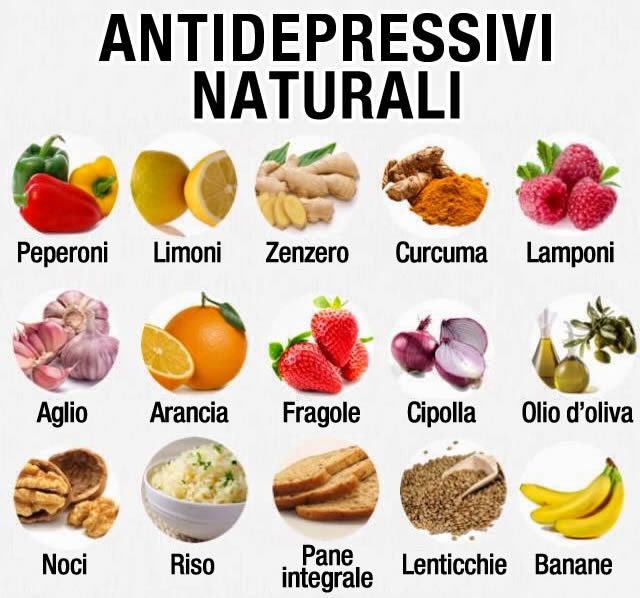
The world’s most common neurodegenerative disease and the leading cause of dementia. There is no cure for Alzheimer’s disease, so doctors advise focusing on preventing it. Inflammatory and oxidative processes play a role in the development of the disease, and curcumin reduces their influence [17]. In addition, a key feature of Alzheimer’s disease is the accumulation of protein tangles called amyloid plaques. Studies have shown that curcumin helps clear these plaques [18].
Rospotrebnadzor gave recommendations for the prevention of Alzheimer’s disease
Curcumin supplements are recommended for patients with joint inflammation. One study involved patients with rheumatoid arthritis. They noted that turmeric was in many cases no less effective in relieving pain than a chemical anti-inflammatory drug [19].
8 reasons to add olive oil to your diet
Studies have confirmed that curcumin has benefits in fighting depression. Scientists divided 60 people with this diagnosis into three groups [20]. Some patients took Prozac, others took 1 g of curcumin daily, and still others took both.
Scientists divided 60 people with this diagnosis into three groups [20]. Some patients took Prozac, others took 1 g of curcumin daily, and still others took both.
© Ksenia Chernaya/Pexels
Six weeks later, doctors noted that the substance from the spice produced the same improvements as an antidepressant. The best results were recorded in the third group of patients [21]. Depression is associated with decreased levels of brain-derived neurotrophic factor (BDNF) and shrinkage of the hippocampus, an area of the brain that plays a role in learning and memory. Curcumin increases BDNF levels, potentially reversing these processes.
More than just words: what expressions in conversation indicate depression
Turmeric helps fight age-related changes and chronic diseases. It is often used as an additive in vitamin complexes to maintain youth and beauty. Curcumin acts as an antioxidant, improves blood circulation and, accordingly, skin regeneration processes. The spice enhances collagen synthesis, promotes the healing of minor wounds and gets rid of acne due to its anti-inflammatory properties. Thanks to powerful antioxidants, turmeric evens out complexion [22].
Beautiful skin, healthy heart and 8 more reasons to eat berries
Like any natural product, turmeric can cause allergies. If the body reacts to known spices, then this seasoning should be used with extreme caution. Before constant use, you need to do a test on your hand: apply a pinch of turmeric with water or milk and look at the skin reaction for two days. Pregnant women should not eat turmeric frequently due to its blood-thinning effect. In addition, there is an assumption that eating hot spices in the last trimester can provoke contractions.
Turmeric should be excluded from the diet of people taking blood thinners (aspirin, warfarin) and anti-diabetic drugs – the spice lowers blood sugar levels. Adding a small amount of turmeric to food as a seasoning does not cause health problems.
Wanted to sneeze: 8 stars who live with allergies
Seasoning emphasizes the taste of meat (especially chicken), omelettes and mashed soups, combined with rice, lentils and other cereals. Confectioners add it to baked goods in place of artificial colors for a beautiful yellow-orange color.
Be sure to pay attention to the expiration date. Despite the fact that spices can be stored for years, stale turmeric loses most of its beneficial properties and tastes bitter due to rancid essential oils in the composition. The spice is used in drinks: a teaspoon of turmeric can be added to milk with honey, fruit smoothies, tea or coffee. Turmeric is mixed with other spices, put in dressings, marinades and vegetable salads.
Turmeric enhances the flavor of meat dishes, omelettes, soups and lentils
© Carolyn Nicolas/Unsplash
Spice shops sell fresh turmeric that looks like fine ginger. Roots can be grated and added to food. They give a richer taste and aroma compared to the powder. This option is the most useful, because this way you will surely know that the turmeric is fresh and without impurities.
Turmeric is actively used in cosmetology. To prepare a homemade mask, you can mix the spice with milk and honey. It is believed that with the help of turmeric you can whiten your teeth. But there are no reliable studies to support this information. Moreover, the effect can be just the opposite, since curcumin is a strong natural dye. Equally mythical are the assumptions that the spice helps increase breast size and get rid of cellulite. When taken orally, turmeric does reduce inflammation and improve the intestinal microflora, but this is unlikely to significantly affect the appearance.
Turmeric is added to food and drinks
© Tina Witherspoon/Unsplash
Evgeniya Mayevskaya A.I. Evdokimova, gastroenterologist, nutritionist at the GMS Clinic
Herbaceous perennial plant turmeric from the ginger family really has a potential pleiotropic action, anti-inflammatory and antioxidant effect due to the curcuminoids it contains (one of them is curcumin itself). There are scientific works demonstrating the ability of curcuminoids to normalize the protective / macrophage system of our body, in particular, to influence the activity of neutrophils (white blood cells, leukocytes), lymphocytes and natural killers (a type of lymphocyte involved in the functioning of innate immunity).
At present, the possibility of increasing the level of serum immunoglobulins has been shown only in an animal cell. It is worth noting that this phenomenon has a positive effect on the immunity of animals, however, its effect has not yet been proven in humans. The antioxidant, anti-inflammatory ability of curcuminoids has been known for a long time, there are many supporting data.
We now have the results of a systematic review on remission support in patients with inflammatory bowel disease, ulcerative colitis, where immune system dysfunction plays an important role. These data allow us to conclude that the addition of turmeric to basic therapy helps to prolong this condition and, in general, reduce the activity of inflammation. In addition, the use of curcumin as a fungicidal agent that inhibits the growth of fungi, and in general its ability to modulate the intestinal microflora, is being studied.
The effect of curcumin on the body in the context of the treatment of liver diseases is interesting. For example, during inflammation, a hepatoprotective effect is observed, which promotes recovery by suppressing anti-inflammatory cytokines, free radical oxidation products and normalizing the functioning of liver stellate cells.
It is worth noting that most of these data are from experimental animal studies and cannot be extrapolated to humans with 100% certainty. The opinion that turmeric cannot be used for hepatitis due to potential negative effects and can provoke autoimmune hepatitis is most likely due to the fact that:
 Often, it is the simultaneous use of various substances that contributes to the occurrence of complications.
Often, it is the simultaneous use of various substances that contributes to the occurrence of complications. At the moment, studies do not provide a clear answer to the question of the connection of turmeric with hepatitis. There are only a few scientific works demonstrating the ability of curcumin to inhibit, that is, significantly reduce the activity of an important liver detoxifying enzyme, and, accordingly, potentially exhibit a toxic effect, but more research is needed to prove this. It can be assumed that the toxic effect depends on the dosage of the substance or its combination with others.
In the US, curcumin is recognized as safe as a dietary supplement and as a drug. The recommended dosage of the active ingredient – curcumin (not turmeric in powder) – starts from 3 mg / kg of body weight, maximum – up to 10 g per day. These data are provided in preclinical and clinical studies, but the follow-up period for all is very short and is limited to 16 weeks. When taking large doses of turmeric, negative reactions from the gastrointestinal tract, diarrhea and nausea, allergic manifestations and increased bleeding are possible when taken together with certain antiplatelet agents and anticoagulants.
When taking large doses of turmeric, negative reactions from the gastrointestinal tract, diarrhea and nausea, allergic manifestations and increased bleeding are possible when taken together with certain antiplatelet agents and anticoagulants.
There are no data on excretion of the active curcuminoids of turmeric from breast milk, nor data on safety in infants. To date, there is no evidence that turmeric can affect lactation. In India, for example, traditionally this plant is used to increase it. There is no need to eliminate the spice while breastfeeding, as it is known to be safe in dietary doses, but it should not be consumed in greater amounts either.
In 2019, more than 700 patients participated in a meta-analysis on the effect of curcumin on blood pressure levels. The study showed that only with long-term use (more than 12 weeks) was there a decrease in the level of systolic pressure. That is, there is a positive effect, but the data do not allow the use of turmeric as a monotherapy for the correction of pressure.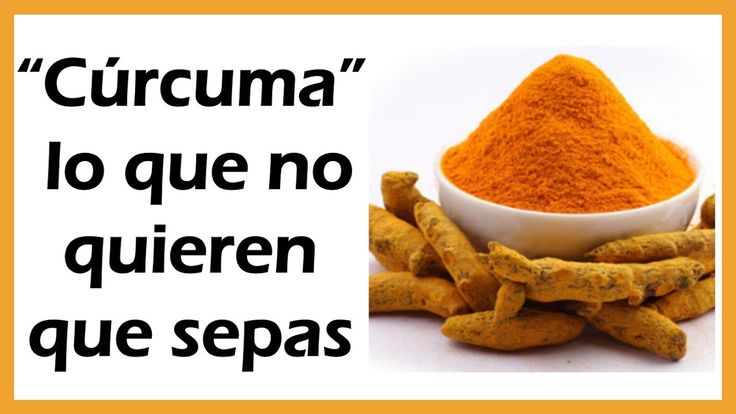
The use of turmeric in large quantities for several days to “cleanse the body” together with fermented milk products can cause an allergic reaction, diarrhea, nausea, exacerbation of gastrointestinal pathology, such as acute gastritis, and even provoke biliary colic. Experiments can negatively affect the body. I recommend consulting with a specialist.
Tags:
proper nutrition
Historical homeland of turmeric is southeast India. The root of this plant is the main component of the famous curry seasoning, which gives the dish not only a sharp taste and specific aroma, but also a pleasant yellow color.
Even in ancient times, it was noticed that turmeric increases the shelf life of cooked dishes. The plant also dyed gloves, metal and wood in a golden color.
The plant also dyed gloves, metal and wood in a golden color.
Appreciating all the advantages of turmeric, people began to use it as a cheap substitute for expensive saffron.
Turmeric removes toxins and harmful substances from the body, as it contains antioxidants that “kill” free radicals.
Scientists believe that turmeric may help fight Alzheimer’s disease (1). The spice removes excess water from the body, reduces swelling in arthritis. Turmeric also blocks cancer cells (2).
The tangy taste of turmeric helps fight viruses and bad bacteria, so the seasoning is useful for various inflammations. Turmeric normalizes the digestive system, kidneys, gallbladder and improves appetite.
In general, turmeric is harmless. The only thing that can become a contraindication to its use is individual intolerance. So if you’re allergic to curry, you’re more likely to have a reaction to turmeric as well.
The only thing that can become a contraindication to its use is individual intolerance. So if you’re allergic to curry, you’re more likely to have a reaction to turmeric as well.
Turmeric promotes the production of bile and gastric juices, so it is useful in diseases of the liver, kidneys and gallbladder.
– The most valuable thing in turmeric is curcumin. This substance has an antioxidant effect, it fights free radicals. It also protects against cardiovascular diseases and cancer. There are even studies that turmeric is used in the treatment of tumor diseases. In particular, with melanoma and its chemotherapy. It is able to neutralize the harmful effects of chemotherapy. It works great as a natural antibiotic, inhibits the growth of pathogenic flora. The use of this spice affects the work of almost all internal organs. It cleanses the body of toxins, has a good effect on the functioning of the liver, – said nutritionist Elena Solomatina, candidate of medical sciences.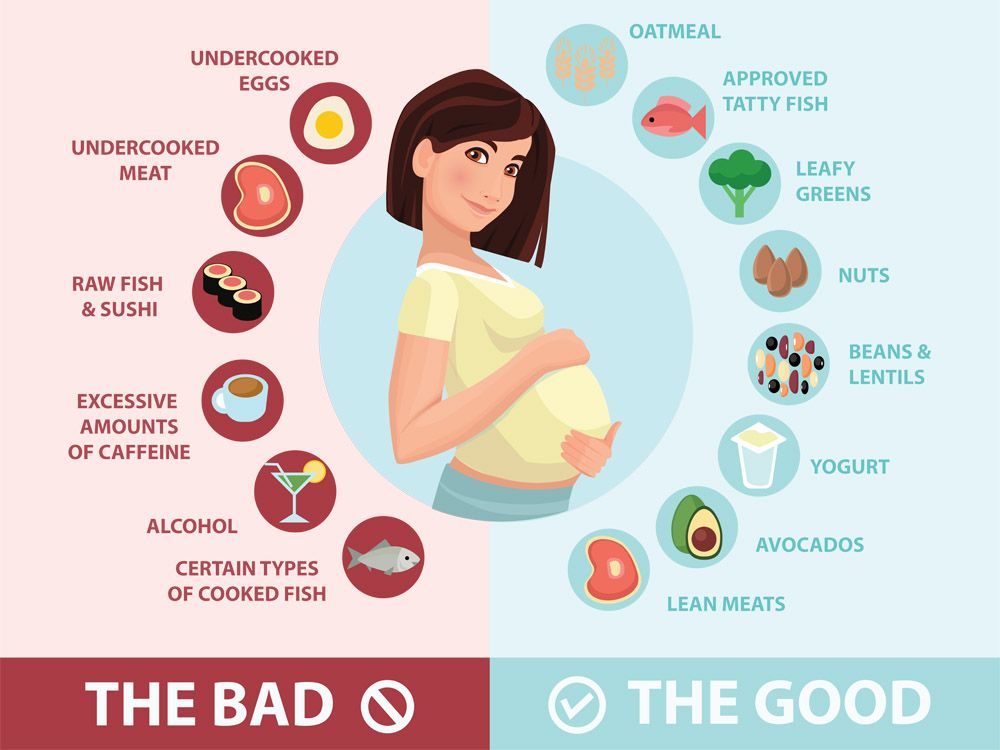
Curry can be added to meat and vegetable dishes, fish, soups, omelettes and sauces. Turmeric makes chicken broth saturated, removes the bland taste.
Ayurvedic drink prolongs youth and normalizes the functioning of the internal organs of the body. Helps with colds and bad mood. Milk is recommended to drink in the morning on an empty stomach or in the evening before going to bed. Store the drink in the refrigerator
Share your recipe
Send your signature dish recipe to [email protected] . “Komsomolskaya Pravda” will publish the most interesting and unusual ideas
An option for breakfast or an afternoon snack after a nap. The dish is low-calorie and nutritious. Pancakes are combined with both meat and your favorite sauce. Can be served as a vegetarian dish
Photo: pixabay.com
| Sign Croats | 1 cup |
| Water | 1. 5 cup 5 cup |
Salt | 1 h. Spoom | Carrots | 1 pc. |
| Onion | 1 pc. |
| Vegetable oil | 50 ml |
| Turmeric | 1 teaspoon |
Pour the semolina into the water, add the frying and make the dough. After – fry the pancakes in the traditional way.
Buy whole turmeric, not ground. So you don’t run into a fake. The root should be dense, without visible damage and soft sides.
Smell the turmeric. A good product has a bright pungent smell. If there is no aroma, then the product is stale and it is better not to use it for food.
If you still take powdered turmeric, make sure that there are no lumps in it. And the package did not have holes, otherwise moisture will get into the turmeric.
Storage conditions. Turmeric is not friendly with the sun, so keep the seasoning in a dark, dry place.